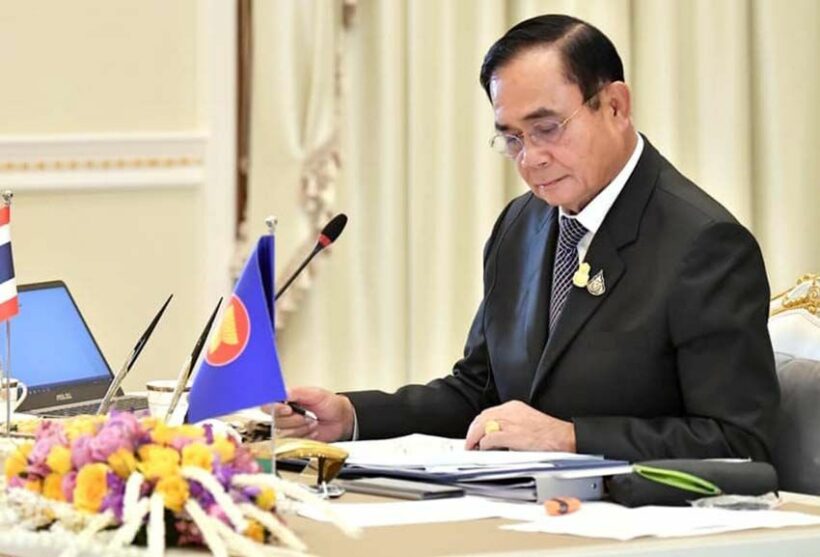PM says government will make tackling household debt a priority in 2022

The Thai PM has used his New Year address on Facebook to reassure citizens that 2022 will be the year the government tackles household debt. PM Prayut Chan-o-cha says the government will focus on accelerating economic recovery and dealing with household debt in 2022. According to a Bangkok Post report, he acknowledges the economic hardships caused by the pandemic and associated lockdowns and restrictions, but praised the various stimulus measures put in place by his government.
“I’m pleased that the measures have shown signs of easing people’s plight.”
The PM says the re-opening of the country has helped to ease the situation somewhat and kick-started the economy. Across the service, industrial, and farming sectors, he says confidence has been buoyed and investments are looking up. The PM says government relief packages have maintained the public’s purchasing power and further stimulated the economy.
According to the PM, schemes such as the Khon La Krueng co-payment subsidy have been a huge success and phase 4 will launch in March. He says phase 3, which ended on Friday, accounted for over 200 million baht in public spending. The PM has also pointed out that the government made around 240 billion baht in loans available for small to medium businesses, which helped to create 2.6 million jobs. In addition, he says the 80 billion baht rice guarantee scheme has helped 4.7 million farmers across Thailand. The PM also pointed out that the country has administered over 100 million Covid-19 vaccine doses to protect the public during the pandemic.
In the coming year, the PM says tackling household debt will be a priority for the government. According to the Bangkok Post report, he says the situation has now reached crisis point and his administration plans to use various measures, including debt negotiations and restructuring to address the issue.
A recent Reuters report put Thailand’s household debt to GDP ration at 89.3% in the third quarter. It was 14.35 trillion by the end of September, compared to 14.28 trillion at the end of June. This puts it among the highest in Asia, according to the report.
SOURCE: Bangkok Post
Latest Thailand News
Follow The Thaiger on Google News:


























